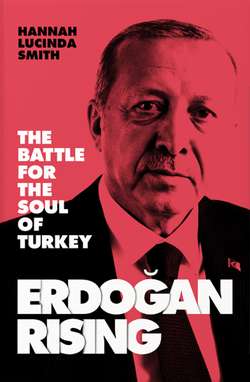Читать книгу Erdogan Rising - Hannah Smith Lucinda - Страница 26
4 ERDOĞAN AND FRIENDS The diaspora
ОглавлениеUfuk Seçgin is a Turk without Turkish citizenship and, at heart, a liberal. In Germany, where he was born, grew up and went to university, he supports the left-leaning Social Democrat Party. In Britain, where he has a second citizenship and runs his business, he is a Remainer. But in Turkey – in his DNA – he is a solid supporter of Erdoğan and the AKP. It is about more than just clever marketing.
‘You should have been in Turkey in the 1990s. Compare that with now, it’s day and night!’ Seçgin tells me in his crisp German-accented English. ‘Going to hospital was high risk, basically. I can remember how we were buying medicine from pharmacies in Germany and sending them because either they were not available in Turkey or they were so expensive they couldn’t buy them. And food banks, water cuts – there was no clean drinking water. Like fuel stations you would have water stations in the city. People would go with their empty containers and fill them, every day. Electricity just a few hours a day. You see that and then you see this, what’s going on now. And you say, well, this was definitely a success of the Ak Party.’
As a child born to Turkish migrant parents in Hamburg in the 1970s, Seçgin could at first only claim Turkish citizenship. His German identity documents listed him as a ‘son of a Gastarbeiter’, the name for the Turks who flocked to Germany as economic migrants in the post-war boom. They were not allowed to become German nationals. Then, in the election campaign of 1998, the Social Democrat Party pledged to lift the rule that meant only people born of German parents could claim citizenship. Seçgin, a business student with big plans, saw a new spread of opportunities open up with the promise of EU citizenship. But though the SDP won the election they were shunted back on their promise by pressure from the right wing. The amendment to the citizenship law that was eventually passed allowed the children of Turkish migrants to become German citizens – but only if they renounced their Turkish nationality. Migrants from anywhere else were allowed to keep both.
‘That was because they wanted to avoid people running on both cars,’ says Seçgin. ‘It’s black or white. You’re German or you’re Turkish. Where are your priorities, that type of thing.
‘I still remember, I went into one of my local meetings with what was then the head of the foreign commission in the German parliament, a so-called veteran of politics. He had been forty years an MP in our region. I asked him why are you doing it this way, and gave him a list of citizenship rules from other countries. He started to give me stupid answers and I pushed further, and further. And the answer he gave me was: “What if Turkey enters a war against Germany? Who would you fight for?”’
Seçgin took German citizenship, and renounced his Turkish, in 2004. The Turkish government provides German-Turks in the same position as he is with a blue card, which allows them to live and work in Turkey as if they were citizens but without the right to vote. Nonetheless, they are invested. Seçgin was studying for an MBA at Cardiff University when the AKP was first elected in 2002. He was already a keen supporter. His flatmate – another German-Turk who, unlike Seçgin, weaved a booze-filled, Casanova-like path through British university life – joined the party online as he saw the votes coming in.
‘I said: “Anything Erdoğan or the Ak Party says is completely the opposite of what you believe. So why on earth are you joining?” And he said: “I’m going to be a businessman, and the earlier I join AKP the better for me in the future.”’
Both Turkey and Germany have since yanked at Ufuk Seçgin, trying to make him decide whom he loves more, but really all he wants is to be a successful Muslim businessman in a globalised world. Like many Turks he feels fed up with the EU and the endless merry-go-round of Turkey’s attempts to join it. He once supported Turkey’s membership bid, but now feels it would be better outside it. At the same time, in the UK he is facing the impacts of a Brexit he didn’t vote for, and which doesn’t appeal to him. He will no longer be able to hire talent from the continent with the same ease as he hires British workers, or to work across borders so easily.
Now, in the AKP and Erdoğan, Seçgin sees a party and a leader with some problems. He says there are few signs of a succession plan, no new generation of leaders being nurtured, and he feels the arrests of journalists in the wake of the coup attempt have gone too far. He worries that the Turkish economy, once so buoyant, may soon start to shrivel. But in uncertain times across the span of his world, Erdoğan is one of the few certainties Seçgin can cling to. The president has brought wealth, stability and honour to Turks like him – and to those looking in from the outside, Erdoğan’s flamboyance masks many of his flaws.
‘I don’t see, who has got that charisma? Someone like Erdoğan doesn’t come along every ten years. He comes along every thirty years or whatever,’ Seçgin says. ‘Even his opponents say he is really charismatic, knows his stuff. He has put Turkey back on the map.’
